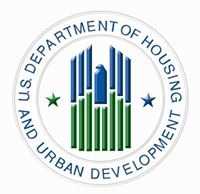Policy designed to accelerate the rebuilding process following disaster
WASHINGTON, DC – September 21, 2012 – (RealEstateRama) — In the wake of Hurricane Isaac in Louisiana and Mississippi last month, the Federal Housing Administration (FHA) is reminding its approved lenders to quickly release hazard insurance payments so struggling families can rebuild their homes.
FHA today published a Mortgagee Letter to reinforce its existing policy requiring lenders to release insurance payouts to homeowners eager to rebuild their damaged homes following disaster. In the past, the U.S. Department of Housing and Urban Development (HUD) noticed some lenders would instead use these insurance funds to pay off the outstanding mortgage balance, leaving many homeowners without the resources they need to rebuild their homes.
“FHA Lenders are always required to follow our guidance and, particularly following a devastating disaster like Hurricane Isaac, it is important that FHA take affirmative steps to ensure that is the case” said Carol Galante, FHA’s Acting Commissioner. “By issuing this reminder today, we are confirming that these insurance payouts are intended to help rebuild a family’s home.”
Sen. Mary Landrieu of Louisiana added, “I applaud HUD Secretary Shaun Donovan and Assistant Secretary Galante for working with us to take quick action to remind lenders of FHA’s policies. This ensures that the actions of several unscrupulous mortgage lenders after Katrina will not be repeated during recovery from Isaac. It is important that homeowners themselves receive their insurance proceeds so they can begin to rebuild their homes and lives impacted by this storm.”
In its loan documents, FHA requires that the mortgage lender be named as a “Loss Payee” on a homeowner’s hazard insurance policy. This requirement helps ensure that insurance proceeds are available once the rebuilding of a damaged property begins. It also protects lenders in the event properties cannot be rebuilt and some or all of the insurance proceeds are required to pay off the outstanding loan indebtedness.
Timely receipt of flood and hazard insurance proceeds allows homeowners to rebuild their homes and provide some stability for their families. Therefore, lenders are strongly encouraged to assist homeowners by: (1) providing copies of hazard insurance policies and information when requested; (2) promptly releasing hazard insurance claim proceeds when a viable repair plan has been approved; and (3) following standard procedures to ensure that hazard insurance claims are filed and settled in an expeditious manner.
In addition, if a lender receives funds from an insurance company for coverage of a homeowners’ personal property, temporary housing, and other transition expenses, then the lender must promptly release such proceeds to the borrower. The mortgagee may not withhold disbursement of such proceeds to cover an existing arrearage without the written consent of the homeowner.
Excess hazard or flood insurance can only be used to cover arrearages and/or pay down principal if: insurance funds exceed the cost to repair the property or; insurance funds are insufficient to repair the property based upon the repair estimate, and the homeowners is unable to demonstrate that he/she has the funds necessary to cover the difference of the repair costs.
###
HUD’s mission is to create strong, sustainable, inclusive communities and quality affordable homes for all.
HUD is working to strengthen the housing market to bolster the economy and protect consumers; meet the
need for quality affordable rental homes: utilize housing as a platform for improving quality of life; build
inclusive and sustainable communities free from discrimination; and transform the way HUD does business.
More information about HUD and its programs is available on the Internet at www.hud.gov and
http://espanol.hud.gov. You can also follow HUD on twitter @HUDnews, on facebook at
www.facebook.com/HUD, or sign up for news alerts on HUD’s News Listserv.
Contact:
Brian Sullivan
(202) 708-0685











